STORY about SolidarityIndigenousEnvironmentEducationDirect Actionpublié le Septembre 8, 2010 by stimulator
Pilalt fisherwoman won’t get a license from DFO
And she won’t play by the provincial court’s rules, either
Also posted by stimulator:
Also in Direct Action:
Denise Douglas is in court for fishing “without the authority of a license.” It’s not the first time. “I’ve never had a fishing license,” says the Cheam Member, who considers herself more authentically to be Pilalt - one of the original five Sto:lo tribes. One of the charges against her, July 16, 2002, was made at her family’s ancestral fishing rock near Yale. That exact rock was noted by Simon Fraser in 1808 in his journey down- river. At that time there was a large plank house on top of the rock.
The trial will be argued over jurisdiction, aboriginal title, and aboriginal rights. At this stage the defenses span the Charter of Rights and Freedoms, Section 35 of the Constitution, and international human rights statutes.
Douglas will be representing herself for the first time. In other court cases she has been in court since 1985 on successive charges she has had a lawyer. Along with her sister, also charged, she will represent herself, two nephews and a cousin in the same trial. More than a dozen Cheam Members were part of the same Crown action, but only five remain. Others pled guilty in order to be rid of the whole situation.
All five of the defendants are on bail during the case, and all have already been in prison for failing to report properly under the terms of their bail. Conditions of bail include not fishing without a license.
“We have to fish. We need the fish to supplement our food supply.” Court is not back in session until September 13. Accepting a DFO licenses would compromise the position being taken in court, which is that neither DFO nor the court has any jurisdiction. “We are sovereign. In this case, we are claiming our sovereignty as Pilalt, so Cheam as an Indian Band may even be in trespass.”
Working with anthropologist Keith Carlson from the University of Saskatchewan, Douglas states she has evidence that places her people in the lower Fraser Valley since the end of the last ice age.
There are disagreements within the Band and at the Tribal Council level over the best way to practice traditional fisheries. “One thing I would like to bring forward is the lack of support from the big native organizations who receive the mega-bucks from government to do reconciliation work in the fisheries. Instead, at the local level, we’re already tried, convicted and hung.”
“I found out that Delgamuukw cost us $25 million. And here we are, going through these cases, arguing for our jurisdiction and our fisheries, and it isn’t costing anyone anything. Except the Crown, it’s their action.” Douglas is doing her own research for the case while working on a second degree at the University of the Fraser Valley.
Judge Crabtree has already stated that he will not make a declaration of title, and that he is assum- ing the Crown has title. “I need to refer to that comment, but he won’t let me have the transcripts.” The Douglas defendants are collecting up incidences of irregularity for a case they have planned down the road.
“If you look at what it says in the International Charter of Rights, we are not being treated like Canadians in these courts. But then we’re not really Canadians, we’re Registered Indians.” Douglas spoke of what that difference means; how Cheam has become ghettoized by colonization, how six police cars come at once for a single person who has failed to report to their parole officer - over a fishing charge; and how procedural irregularities are “salient details: they waited a full two years to chase us down gangland-style with a summons for these charges, days before the statutory limitation.”
“We were raised by our Elders, my sister and brother and I. We were trained by the Elders to do what we do: to defend our fish from anybody. Our Elders were out there on the river when DFO had gunner boats to patrol us, boats with machine guns attached to the bow.
“Now DFO and the RCMP sign deals about enforcing us on the river. Last month they had a supper to sign the deal, and our Band paid for their dinner, and at the same time the Canadian Forces gave the RCMP two tanks - one for Agassiz and one for Chiliwack. I was scared when I read about it.”
The court case is in year six with only three days of trial so far, last May. If the defense was going by current court precedents, Douglas would have to prove an aboriginal right, show prima facie infringement of that right, and force the crown to jus- tify their actions. The legality of DFO regulating by fishing licenses, arbitrarily, has been tested and they have been found to have that authority in other cases. “But we know now that they can’t say, ‘because you didn’t use your rights for a minute, they’re gone;’ or, ‘if you’re not sitting on that fish rock 24/7, 3-6-5, as soon as you leave you lose your title and someone else can discover it.”
What this case seeks is recognition, in the court- room, that neither the judge nor the plaintiffs, in this case the federal government, have any right to be there making demands on sovereign Pilalt people on their own lands. “They never perfected a treaty with us. They do have a Constitution and laws, and those are good. They work well for the people they were written for. And their courts are like a chess board, everyone with their own moves and capabilities. But for us, as Pilalt, we don’t have a starting place in that courtroom. If they’re saying we’re playing as Canadians, I challenge that: we’re registered Indians. When we play as Canadians, that’s when we get messed around.”
“I told them, without proof of title, he doesn’t have jurisdiction to treat us like criminals in a provincial court house.
“I’ve filed a writ of Mandamus in the Supreme Court. After this case, we’re planning a class action suit with the complaint of genocide, because we’re sick of it.”
Douglas and others, including Wolverine from Secwepemc, are planning a Dialogue on Fisheries in Cheam on September 11.
Interview with Kerry Coast
Click here to download PDF
The site for the Vancouver local of The Media Co-op has been archived and will no longer be updated. Please visit the main Media Co-op website to learn more about the organization.
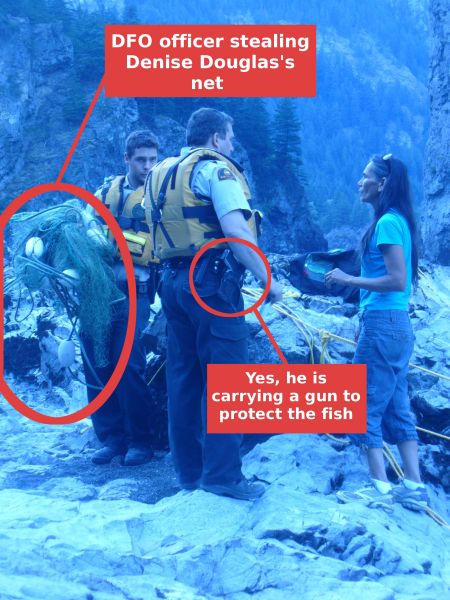
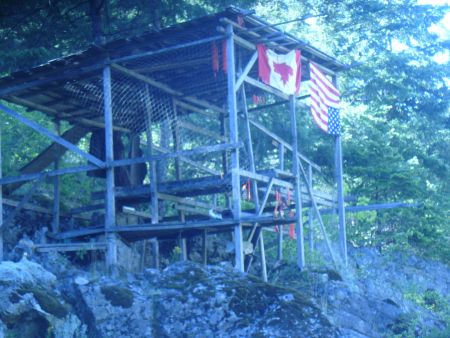
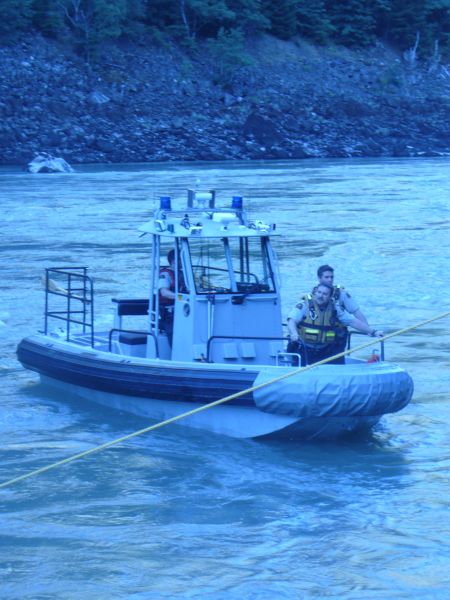
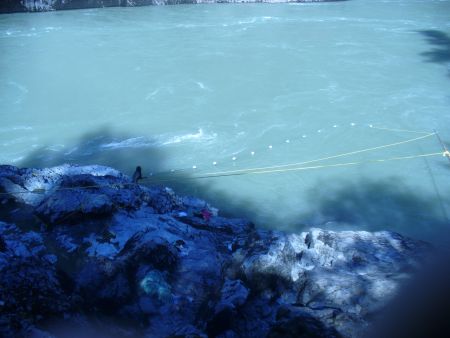
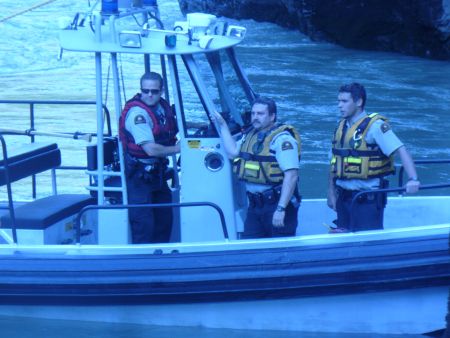
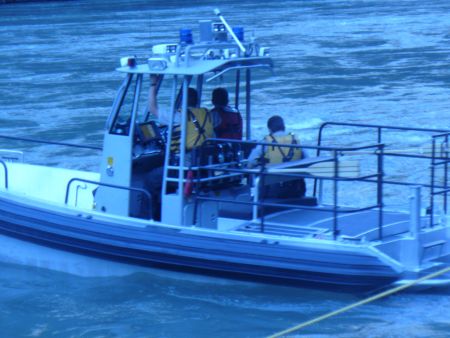
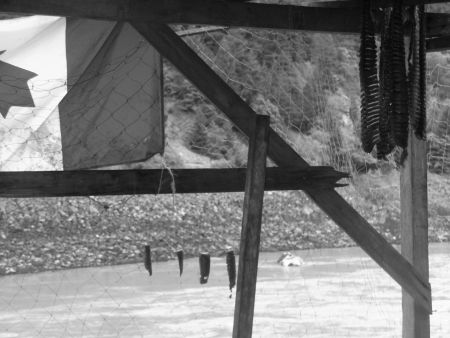
Commentaires
Fantastic!
How inspiring to see this story and the facts. I cannot express enough of how important it is to have a community voice. Much of our media is right out of touch and basically serves their corporate masters.
Aboriginal first nations have long been abused, lied to and basically assimilated in their own country, to which we colonized and have been trashing for 100's of years. More so now than ever!
Thank you again for taking the time to post this story and please keep them coming.
All my relations/Namaste
Tami Starlight (Cree - plains)